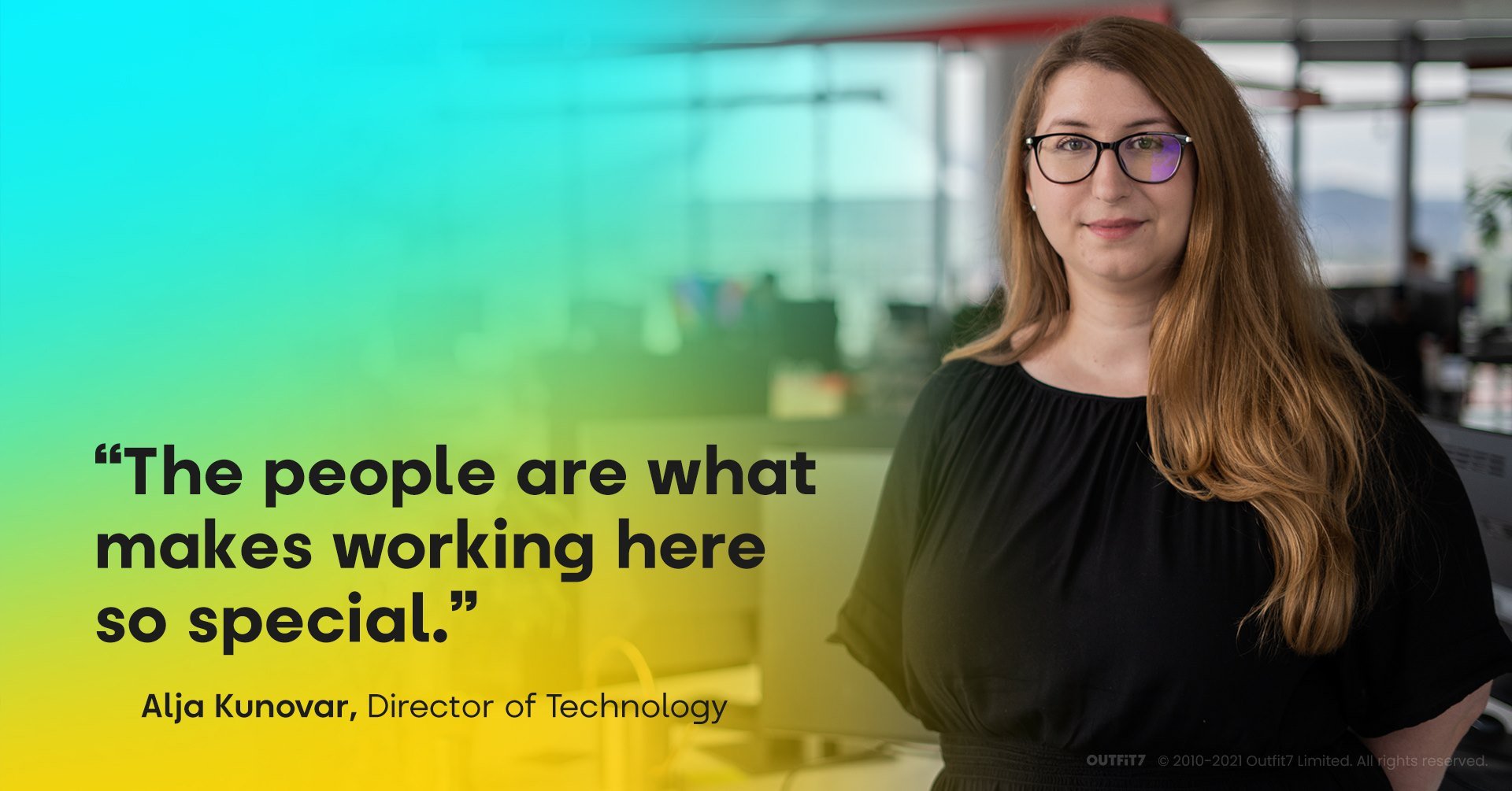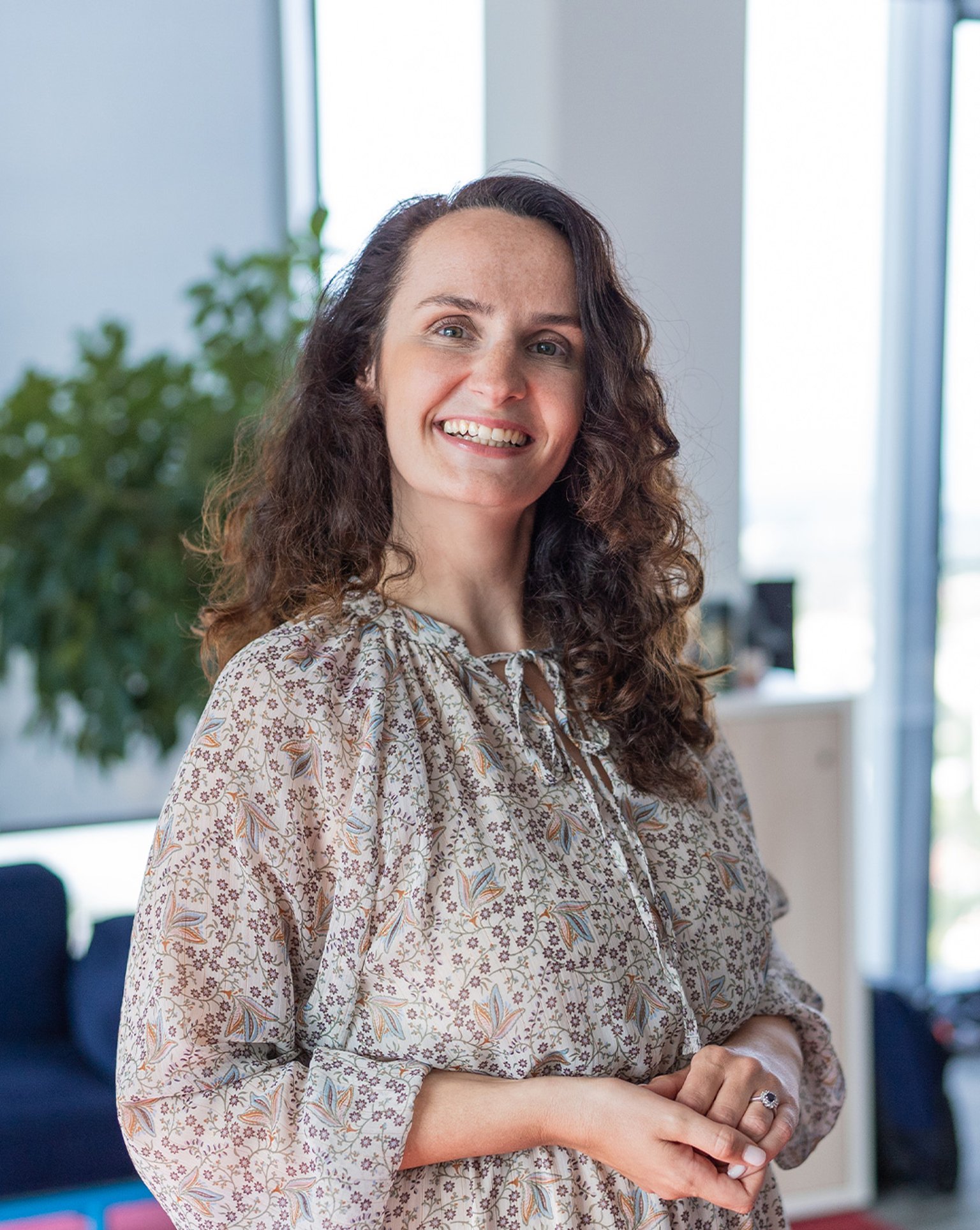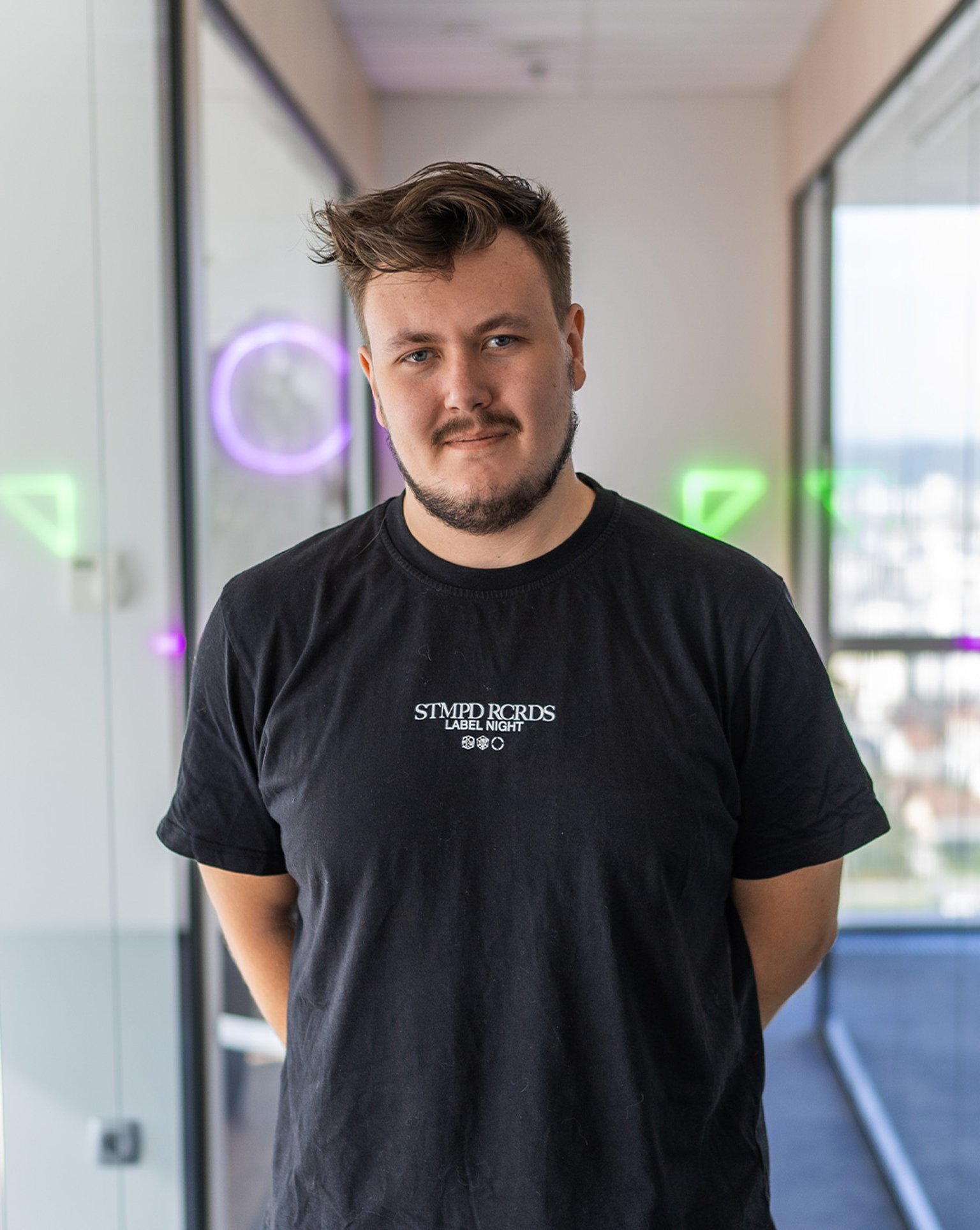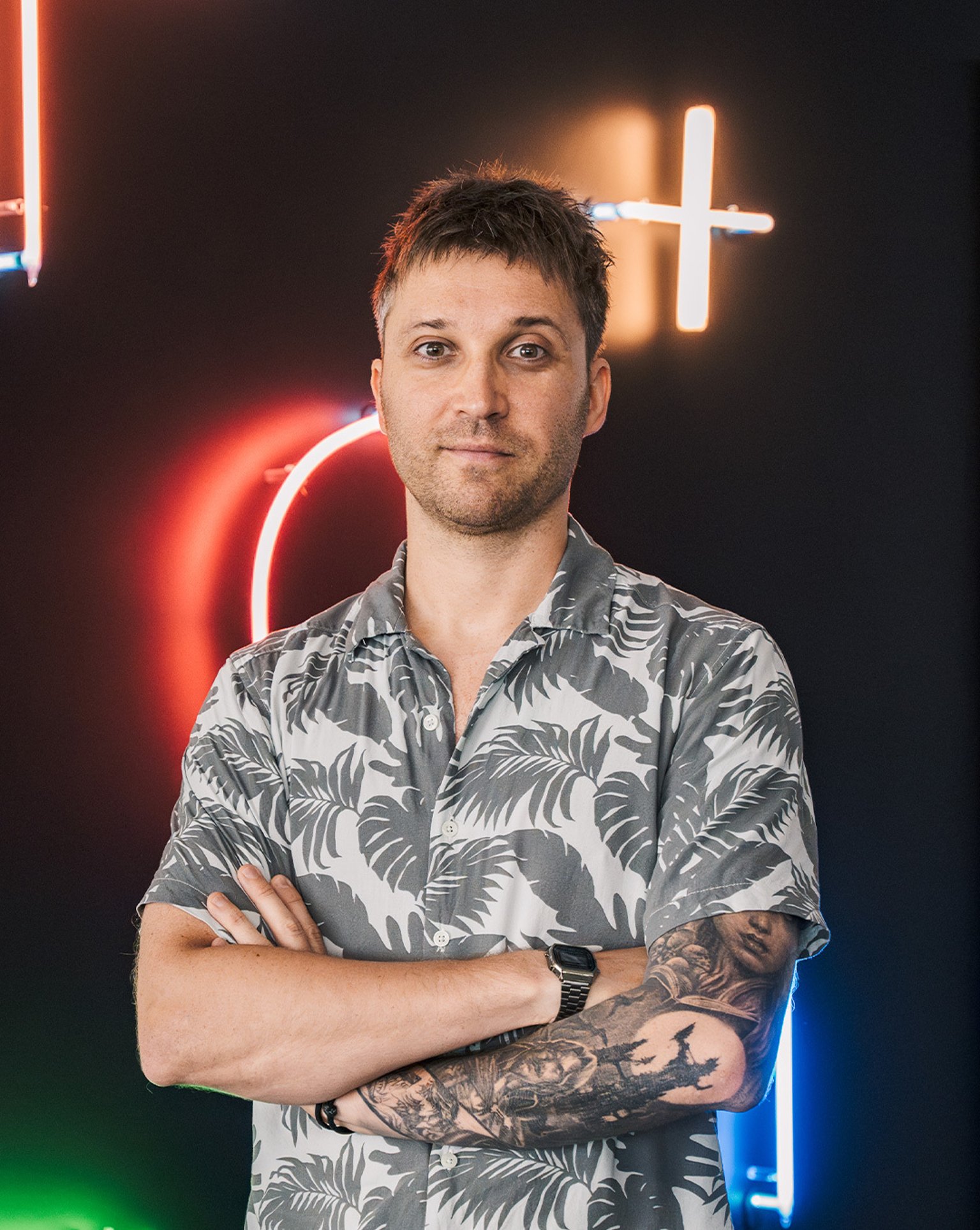Back in 2014, I was a student doing my Master's in Computer Science and I was ready to get started with my career. Working in gaming was my dream, and Outfit7 was the place I wanted to go. And I made it happen. I interviewed on Friday, and was in the office on Monday! But I’d never have guessed, back then, that this would set me on a path to becoming Director of Technology at the company!
My first role was in Quality Assurance (QA), which was a great entry point. But back then, I actually wanted to be a game developer – and I was pretty upfront about that in my interview! But Outfit7 is totally on board with helping people achieve their aims, and get where they want to go, so that wasn’t a problem. In the end, though, I fell for QA. At Outfit7, QA is way more than just testing – you contribute to the early production stages and get to make a direct influence on the game. Plus, you get to work with lots of people, which suits me down to the ground.
I’ve moved departments a lot over the years – getting promoted to QA lead along the way, learning with each move, and taking on more responsibility. And each time, I thought I’d found the best team. And then I’d start somewhere else, and think that all over again. But that’s just Outfit7 for you – the people are what makes working here so special. And since I’m now in a people management position, I get to help my team grow and develop, just like my managers helped me. It was a combination of my drive to learn and improve, and the support of my managers, that helped get me to where I am today. Over the years, they pushed me out of my comfort zone challenged me to be my best, and helped me achieve everything I wanted to achieve. I was encouraged to voice my ambitions and, when an opportunity arose, I was given the chance to go for it. And I must have done something right – I was promoted again!
I’ve now been at Outfit7 for around seven years. I’m the Director of Technology on our most recent game, My Talking Angela 2. I lead an amazing team of developers and QAs – and I’ll oversee our development cycles now that the game is transitioning into update mode. A lot has changed for the company too – we’re bigger, we’re global, we’re a billion-dollar business – but our values and our culture have remained the same. People are, and always have been, the most important thing here. If anything, we’re even more focused on people than ever before. And that resonates with me. When I joined, it felt like I found a second family. And that’s never changed.
It’s funny – even though working in the gaming industry was something I dreamed about, computer science wasn’t something I planned on studying. Back in the day, I was taking architecture courses so I could go into the family business. But I had to step back and think about what I wanted for my life. And that’s what led me to computer science. I later found out that my mother was nervous for me – going into an area where women were so underrepresented. She thought I’d have a really hard time. And there were moments when being a woman in this industry was challenging. Ultimately, it makes you stronger. But that just shouldn’t be necessary, you know? Thankfully, it’s not been an issue at Outfit7. Over the years, I’ve seen more and more women join computer science courses at university, and join teams at tech companies. It’s happening. But it would be great if we could normalize tech as a career choice for young girls. To let them know it’s a real – and an amazing – option for them.
I mean, it’s been such a great option for me. I’ve learned so much from working at Outfit7. This was my first serious job, after all. I remember that back then I wanted to have things under control. But of course one of the things you learn in this industry is that you can never be totally in control. All you can control is how you react – that’s the most important thing. So when something does, inevitably, go wrong, you’re able to adapt and see it through. I really respect that about Outfit7 – there’s no blame in those situations. There’s just a problem to solve. You have to think about your team and what they need. A mistake is just a chance to learn and do better next time. And that makes all the difference.
I think that part of our culture – openness, and adaptability – is also why we could shift so easily to working from home over the past 18 months. As a team, we know how to come together and adjust to a situation. To find a way to make it work. And it’s part of the reason that I couldn’t imagine working anywhere else.



